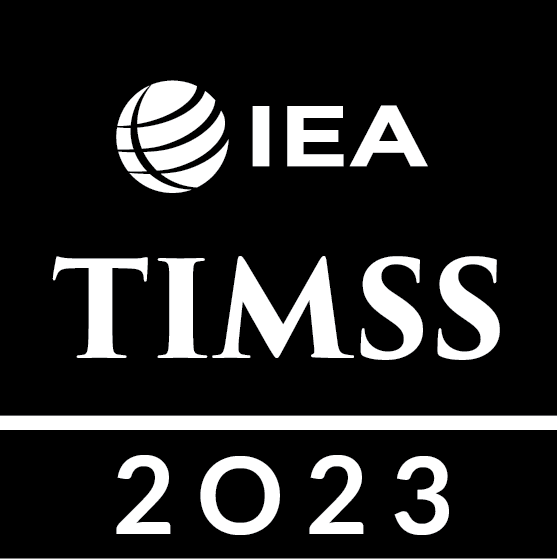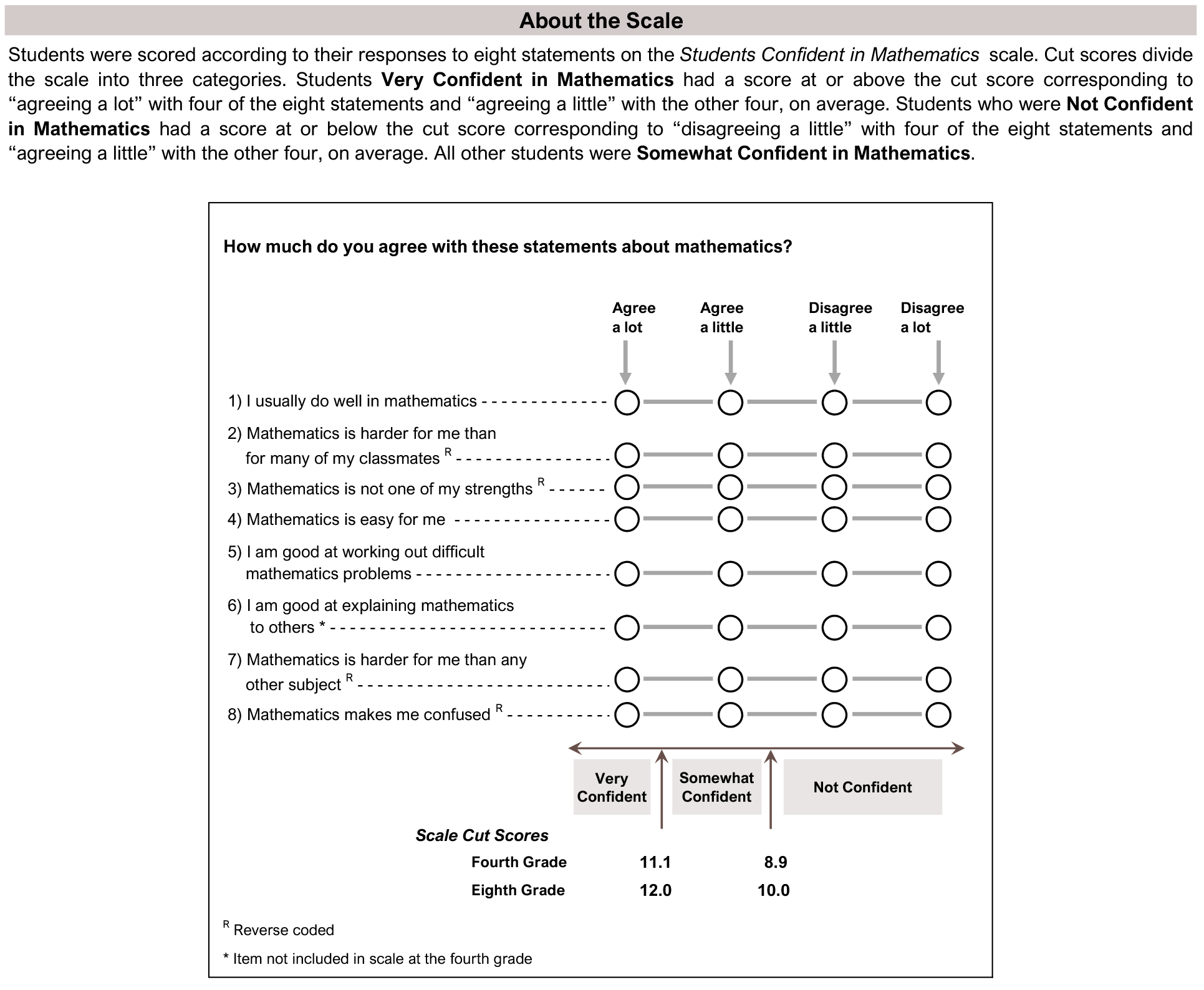Students Confident in Mathematics
Student Experiences and Attitudes
Students Confident in Mathematics
Students’ confidence in mathematics has a strong positive relationship with mathematics achievement for both fourth- and eighth-grade students. In both grades, students who reported higher levels of confidence had much greater mathematics achievement than their less confident peers. The items in the TIMSS 2023 Students Confident in Mathematics scale (Exhibit 6.2.4) prompted students to indicate their agreement with different statements characterizing their perceptions of their mathematical abilities. Based on their responses, students were classified as “very confident,” “somewhat confident,” or “not confident” in mathematics.
On average internationally, 27 percent of fourth-grade students reported being “very confident” in mathematics, 42 percent “somewhat confident,” and 31 percent “not confident.” There is a very strong relationship between self-reported confidence in mathematics and average mathematics achievement for fourth-grade students (Exhibit 6.2.5). Internationally, students who reported being “very confident” in mathematics had an average mathematics achievement score 87 points higher than students who reported they were “not confident” in mathematics (554 vs. 467). Average mathematics for students who reported being “somewhat confident” in mathematics was in between (506).
More than half (55%) of eighth-grade students reported feeling “not confident” in mathematics, on average (Exhibit 6.2.6). Only 13 percent of eighth-grade students reported feeling “very confident” in mathematics and 32 percent reported feeling “somewhat confident.” Internationally, the difference in average mathematics achievement between students who reported being “very confident” in mathematics and those who reported being “not confident” in mathematics was more than 100 points (555 vs. 446). Students who reported being “somewhat confident” in mathematics had an average achievement of 500.
Read More
Students Confident in Mathematics
Very Confident in Mathematics
Somewhat Confident in Mathematics
Not Confident in Mathematics
This TIMSS context questionnaire scale was established in 2023 based on the combined response distribution of countries that participated in TIMSS 2023. To provide a point of reference for country comparisons, the scale centerpoint of 10 was located at the mean of the combined distribution. The units of the scale were chosen so that 2 scale score points corresponded to the standard deviation of the distribution.
( ) Standard errors appear in parentheses. Because of rounding some results may appear inconsistent.
An “r” indicates data are available for at least 70% but less than 85% of the students.
Scroll Up

